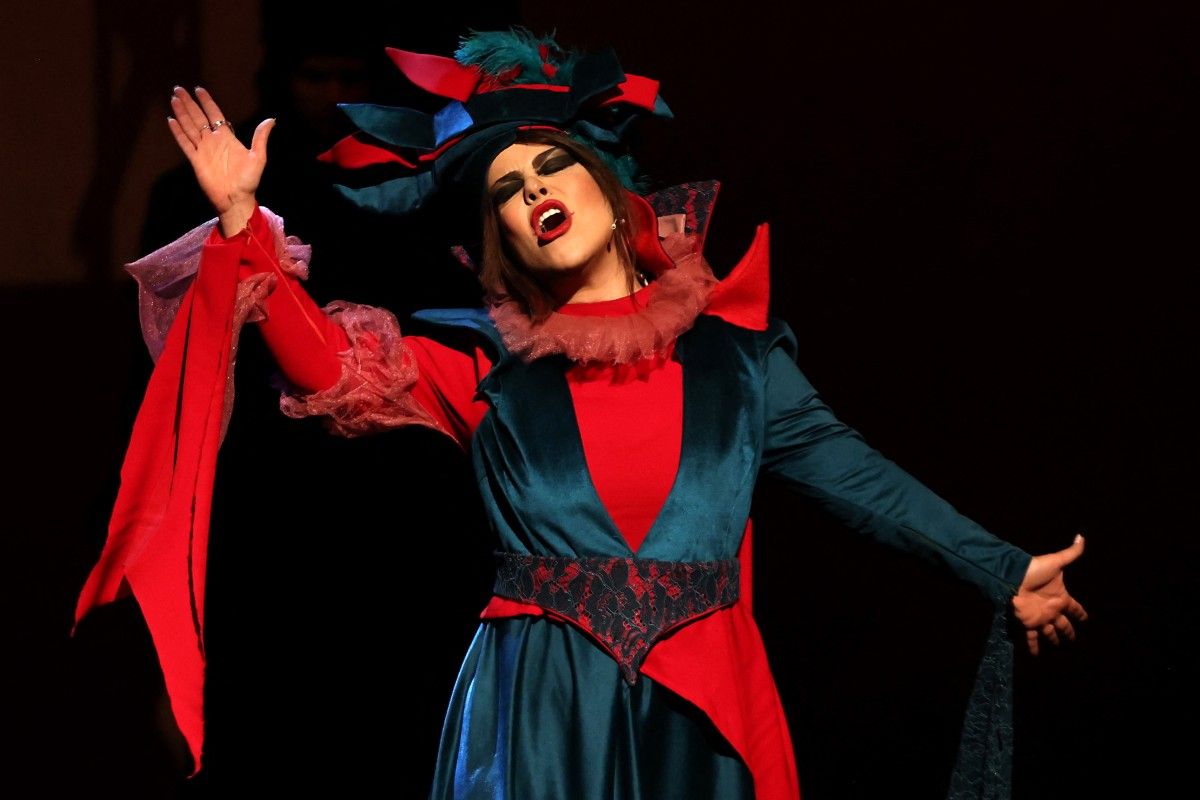
In Tehran, a bold new adaptation of Shakespeare’s King Lear fuses rock music, metal riffs, and nightclub lighting to captivate younger audiences. Iranian director Elika Abdolrazzaghi gives the classic play a vibrant twist while navigating the constant threat of state censorship.
An Iranian director is bringing a jolt of energy to King Lear, staging the Shakespearean tragedy in Persian in Tehran with electrifying rock music and dazzling lights to draw in younger crowds.
In Iran, artists, writers, filmmakers, musicians, and playwrights constantly walk a fine line to avoid censorship of content considered inappropriate by authorities.
Despite tensions with Western countries, many foreign works are still performed in Iran, including those from the United Kingdom.
Elika Abdolrazzaghi took on the challenge of shaking the dust off King Lear by infusing the production with rock and modern visuals—while keeping the “archaic dialogue” of Shakespeare’s original 17th-century text.
“If I had done the original version, it would’ve felt too heavy for people—they’d have been bored,” the 45-year-old artist told AFP. She’s a well-known actress in her home country, now earning praise as a stage director.
To keep the performance moving, a live band plays rock tracks from the British band Muse and heavy metal from Germany’s Rammstein.
Vivid costumes and lighting reminiscent of a nightclub give the show an unexpectedly festive feel, even though the story itself is dark.
The plot centers around a cascade of betrayals within a royal family, driven by ambition and the hunger for power.
Old and frail, King Lear decides to divide his kingdom among his three daughters, based on who flatters him most.
“No Restrictions”
Cordelia, his youngest, refuses to play along, triggering her father’s rage and setting the tragedy in motion.
“I transformed many text-heavy parts into movement, visuals, music, and dance,” said Abdolrazzaghi, one of the few women in Iran to break into directing.
The actors’ costumes—richly detailed in bright red, green, and yellow—draw inspiration from the traditional fashion of the play’s original era.
Songs with Persian lyrics are performed by Reza Yazdani, a pioneering figure in Iranian rock.
“We didn’t think we could sit through a two-hour show,” said Amin, an audience member.
“But it was genuinely great—from the actors’ performances to the music and the set design,” added the 32-year-old engineer, who attended with his wife Elham.
The production team behind the show includes more than a hundred people, with several dozen actors. They’ve been working on the play for months under Abdolrazzaghi’s direction.
She’s previously performed in works by German playwright Bertolt Brecht, Swiss author Friedrich Dürrenmatt, and French writer Yasmina Reza. She says authorities haven’t imposed “any restrictions” on staging foreign plays.
“A Fairer World”
“Theater is still a young art form in Iran and mostly a Western phenomenon,” Abdolrazzaghi explained.
The lead role of Lear is played by Ahmad Saatchian, a veteran actor with 20 years of stage experience. He calls the part “the greatest role” of his career.
“Getting to portray one of the most important characters in literary history is a rare opportunity for any actor,” he said with pride.
Stories like King Lear, Saatchian noted, are universal—they resonate with people everywhere. “That’s why Shakespeare is still timeless.”
In recent years, many of the British playwright’s tragedies have been staged in Iran.
King Lear explores political conflict, power struggles, and royal conspiracies—themes that feel particularly relevant to Iranian audiences.
“Countries that have gone through similar political experiences, like Iran or those in Eastern Europe, feel a special connection to Shakespeare’s works,” said Saatchian.
In the final scene, the broken king, betrayed by his daughters, briefly regains clarity before dying.
At one point, Lear pleads with those in power to experience the suffering of the poor themselves—so they can help build a fairer world. “It’s a message that resonates everywhere,” the actor added.
By Ahmad PARHIZI and Sébastien RICCI / AFP
Comments